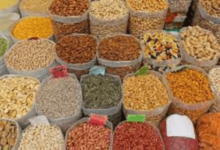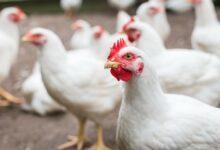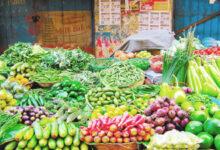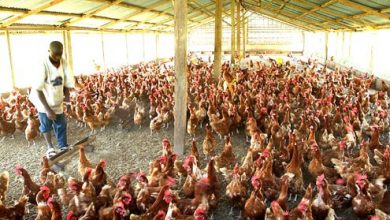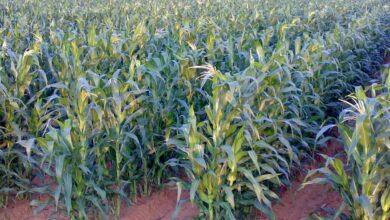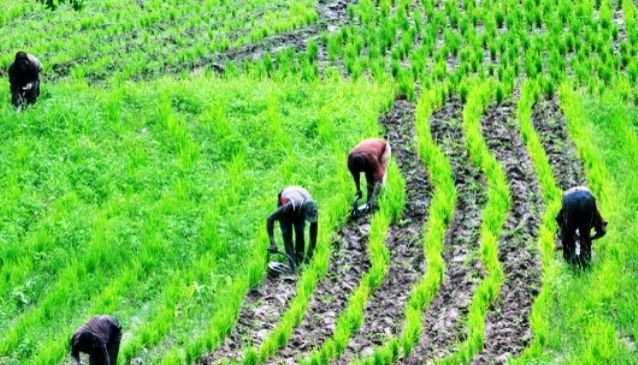
10 Effects of Erosion on Agriculture in Nigeria
10 Effects of Erosion on Agriculture in Nigeria. Erosion is the washing away of earth materials by the aforementioned elements and it is the opposite of deposition. These elements are all affected by climate, for example, intense storms and wind can cause soil particles to be redistributed in great amounts. Increase in temperature aids glacial erosion. When the temperature is intense, ice glaciers het melted and accumulate in water bodies which might overflow and wash away earth particles.
Human activities like land-use change, removal of vegetation cover, urbanization, and like activities can also trigger erosion. Vegetation helps retain soil and holds its particles down from washing away but when forests are cleared for urban development and agriculture, the soil is open and vulnerable to climatic elements like wind and rain thus causing erosion, landslides and flooding.
👉 Relocate to Canada Today!
Live, Study and Work in Canada. No Payment is Required! Hurry Now click here to Apply >> Immigrate to CanadaThe effects of climate change is one of the important problems the world is dealing with presently, Nigeria inclusive. When there are intense and heavy rainfall occurrences in an area, the area is prone to erosion as a result of washing of soil into water bodies thereby leaving the earth’s surface bare. Generally, erosion is the breakdown, detachment, movement and redistribution of soil particles by natural elements of water, gravity or wind.
When any form of erosion happens, it is more than likely to happen again bringing with it many adverse effects on the environment. When the environment is threatened, several stakeholders are affected. The soil is the natural resource that is worked on to produce agricultural commodities, therefore soil erosion is a threat to food production and sustainability. When the soil is eroded, it becomes unsuitable for agriculture thereby reducing the area that can be planted on which affects the amount of commodities that can be produced adversely.
10 Effects of Erosion on Agriculture in Nigeria
Effects of erosion on agriculture include:
1. Reduction in soil nutrients
The soil consists of about 3 layers, the topsoil, subsoil and parent material. The topsoil also called the humus layer is the closest to the earth surface and the carrier of organic matter and essential nutrients needed for plant growth.
When water or wind erosion happens, the topsoil is eroded with all the nutrients it contains. This reduces the amount of nutrients available for plant growth, thus rendering the area less fertile or completely infertile. When an agricultural land is infertile, this means the amount of nutrients have been greatly reduced and this adversely affects the fertility of the soil.
See Also: 10 Roles of Agriculture in Nigeria Economic Development
2. Reduction in crop yield
Erosion causes crop yield to be greatly reduced. When soil erosion happens, crop yield can be reduced by up to 50%. The ratio of amount of produce harvested compared to the seeds planted will be low as a result of the soil’s infertility. Even the harvested crops are likely to be low in quality and contain lesser nutrients.
3. Reduction in income and revenue
As a result of reduced crop yield, revenue and income is greatly reduced and this contributes to economic losses and reduction in agricultural GDP.
👉 Relocate to Canada Today!
Live, Study and Work in Canada. No Payment is Required! Hurry Now click here to Apply >> Immigrate to Canada4. Higher production costs
Another effect of erosion on agriculture is higher production costs. Since the natural nutrients needed for plant growth have been runoff by erosion, fertilizers have to be used to replace the lost nutrients. When these fertilizers are added, there might be imbalances in amount of nutrient needed since the natural nutrients proportion has been disturbed. Even when fertilizers are applied, they can still get washed off by water so there are still losses when this happens. When wind blows on farmlands, young plants or seedlings can get blown off, plant shoots get damaged and seeds get blown off. When this happens, replanting has to be done and this leads to late harvesting. All these losses culminate into higher production costs as some activities have to be repeated in the planting cycle.
See Also: 10 Problems of Agriculture in Nigeria with examples
5. Pollution of water bodies
A livestock farmer also bears the brunt of erosion through pollution of water bodies. When water or wind erosion happens, the sediments that are moved from the earth surface are deposited into water bodies. Fertilizers, pesticides, herbicides and other materials applied on crops get washed into rivers, lakes, ponds, streams, reservoirs and other water courses.
6. Poisoning of animals and humans
If chemicals leech into a pond with fishes in it, the water gets poisoned leading to loss of lives of the aquatic animals. Other animals who get their water from these water bodies with eroded substances also get poisoned and might lose their lives. Humans are also at risk of becoming affected by the polluted water if they ingest or bath with water from rivers or streams close to agricultural farms.
7. Flooding
If a farm has been greatly eroded, flooding can occur as a result of lesser soil surface area to withstand intense precipitation leading to drowning and washing away of farm animals. Loss of livestock results in economic losses for the farmer.
8. Drop in crop productivity
When agricultural lands are degraded by erosion, soil fertility and crop productivity drops. This has a direct effect on food production. The amount of land available for cultivation has been reduced, the nutrients needed for crop growth has also been washed off, and the result is food scarcity.
See Also: 15 New Innovations To Boost Agriculture In Nigeria
9. Food scarcity
This is the shortage of food and may happen as a result of lower production due to low rainfall, pests, diseases and lower productivity. In this case it is due to lower productivity caused by erosion. The crops yielded on this type of soil tend to be smaller and of lesser nutritional value. All this contributes to food scarcity and insecurity.
10. Destruction of farm structures
Lastly, erosion can have lasting effects on agricultural farm structures. When the soil surface is eroded, natural disasters like flooding, storms and landslides are bound to happen when there is lesser soil surface area to absorb moisture. These can lead to loss of agricultural infrastructures and storage facilities. these results in loss of investments and efforts by farmers.
In order to combat effects of erosion on agriculture, proper drainage systems should be constructed on farmlands so when there is intense rainfall, there is a pathway for water to flow through instead of charting a course for itself which might cause runoff. Proper land use and management should also be implemented and rewarded by appropriate stakeholders. Farmer should be educated on importance of vegetation cover and advised not to harvest crops completely, some should be left unharvested to prevent the soil surface from being bare and vulnerable to erosion. Intercropping can also be practiced to aid adequate vegetation cover.
